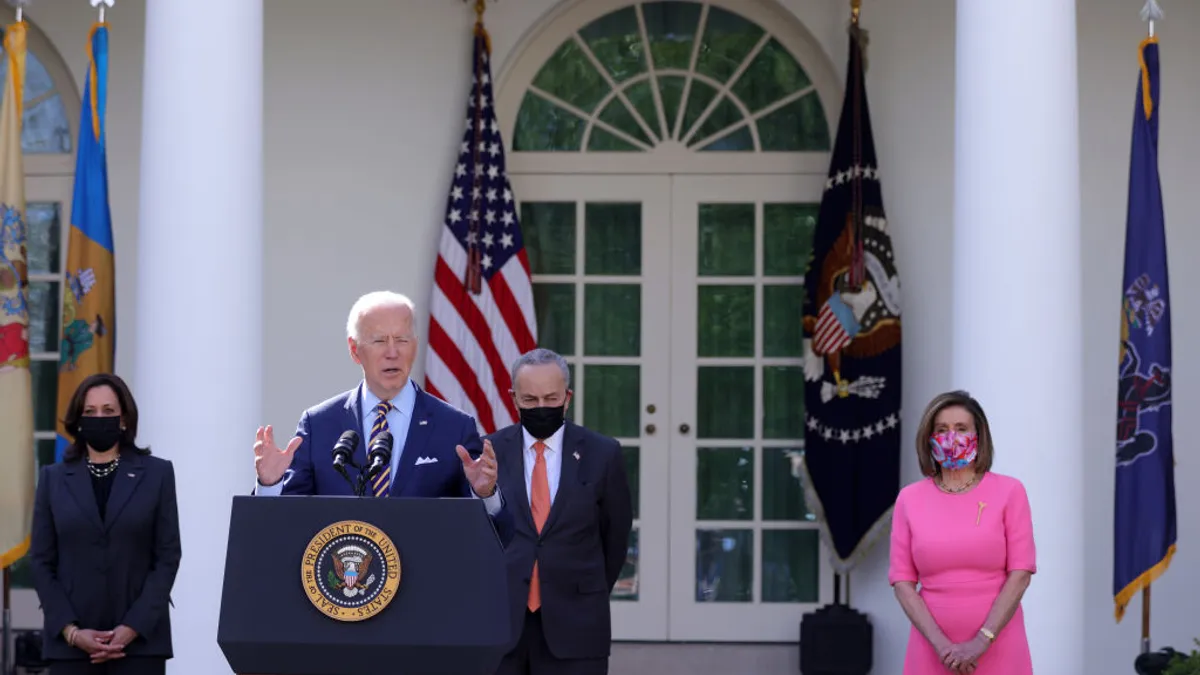Dive Brief:
- Mayors from 236 U.S. cities, representing more than 51 million residents in 47 states and territories, wrote a joint letter to Environmental Protection Agency (EPA) Administrator Scott Pruitt, opposing the proposed repeal of the Obama-era Clean Power Plan.
- The signatories said the reversal would put citizens at risk and harm efforts to address climate change. "No one is insulated from the impacts of climate change," the letter reads. "Residents of our communities have experienced harmful impacts of climate change such as dirtier air, increased heat-related illnesses and deaths, damaged and disappearing coastlines, longer droughts and other strains on water quantity and quality, and increasingly frequent and severe storms and wildfires."
- Other mayors wishing to add their support to the comment letter can contact Climate Mayors to be included.
Dive Insight:
President Donald Trump had hinted at efforts to roll back the Obama administration's Clean Power Plan since 2016, and in October 2017, Pruitt made official moves to rescind the plan. Since then, both the EPA and individual states have held hearings on the proposed repeal — with more to take place this month — and the EPA will accept comment on the proposal until April 26.
The EPA may not have anticipated, however, the volume of comment and opposition it would get through the joint letter, which is backed by mayors of many leading U.S. cities including San Francisco, New York, Seattle, Houston, Los Angeles and Washington, DC. In the letter, the mayors listed staggering figures that point to the potential consequences this repeal could have on cities.
"A peer reviewed study conducted by EPA projected stark differences between a world in the year 2100 where global warming averages 2 degrees Celsius — a goal for which the Clean Power Plan is critical — and one in which global warming averages 4 degrees Celsius: 57,000 fewer domestic deaths per year due to poor air quality; 12,000 fewer domestic deaths per year from extreme heat and cold in 49 U.S. cities; up to $6.4 billion in avoided annual adaptation costs from severe precipitation in 50 U.S. cities; $3.1 billion in avoided annual damages and adaptation costs from sea level rise and storm surge on the coasts; and up to $2.5 billion in avoided damages from inland flooding," the letter reads.
And, while local governments do not need the support from the federal level to push forward on climate- and resilience-focused initiatives, it is evident that resources from the federal government may be key in making those initiatives successful in a short amount of time.
This is not the first time that hundreds of U.S. mayors have come together in opposition over a climate-related decision from the Trump administration. Following the president's decision to pull out of the Paris climate accord in June 2017, nearly 400 mayors committed to uphold the goals of the accord and "push for new action to meet the 1.5 degrees Celsius target." It is clear that cities are not backing down, and local-level dependence will continue to be a trend that shapes 2018.











